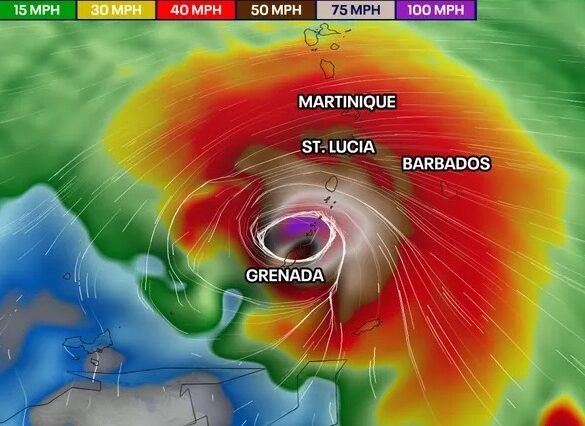Just mentioning Hurricane Beryl brings heartache to our souls because of the catastrophic destruction, pain, and suffering it has brought to so many people, properties, and nations that we have come to love. It seems so trivial to talk about ourselves, since we and our boat came out of the hurricane unscathed, but I’ll tell our story nonetheless.
Kory and I never imagined that we would be in a hurricane. Our boat insurance requires us to be south of Saint Vincent & The Grenadines, which is normally outside of the hurricane zone. So being in Grenada, which we were, is ordinarily a safe place to be during the tumultuous hurricane season. But not this year.
The arrival of Hurricane Beryl marked an exceptionally early start to the Atlantic hurricane season. It usually doesn’t start ramping up until late July or August. But on Sunday, June 30th, the hurricane season started prematurely with Beryl. This became the earliest Category 4 hurricane on record in the Atlantic Ocean, and the only Category 4 ever recorded in the month of June.
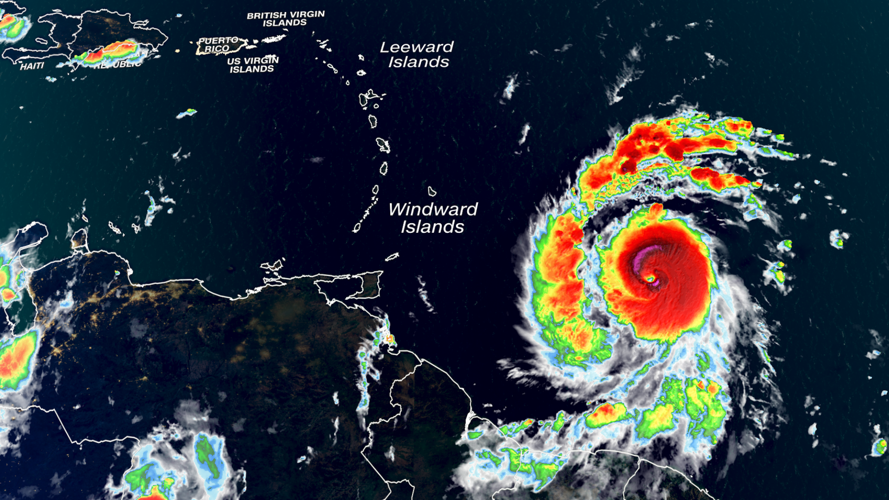
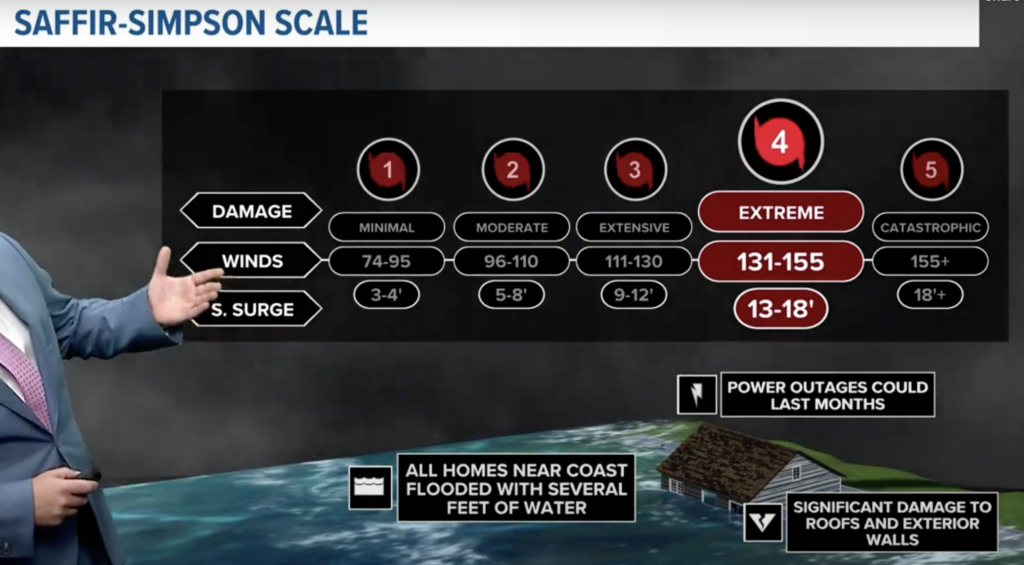
Experts say that the abnormally warm ocean waters facilitated Beryl’s growth and immense strength. These warm waters also indicate that this hurricane season will be far from normal. For the past month or so, there has also been a stalled high pressure system in the Atlantic Ocean near the upper end of the Eastern Caribbean island chain. This high pressure system is causing the storms that are moving east from Africa to stay much farther south than normal. In fact, the last hurricane to hit Grenada was Ivan back in 2004, about 20 years ago. So you can see how shocked we were to learn that we were going to get a hurricane this far south. It’s just not a common phenomenon.
We left Prickly Bay on the south side of the main island of Grenada on Thursday, June 27th and anchored in Egmont Harbour’s hurricane hole, also on the south side of Grenada. Each day leading up to the hurricane, we closely watched the updates on several weather channels and apps, but it was difficult to determine even two days out whether the hurricane was going to come this far south. The early models had the eye tracking more north towards the main island of Saint Vincent. So we found the best hurricane hole in Grenada and spent two days preparing our boat for the upcoming hurricane, not fully aware of how much these hurricanes can actually bounce north or south prior to making landfall. But we knew we were in the safest anchorage available in Grenada.
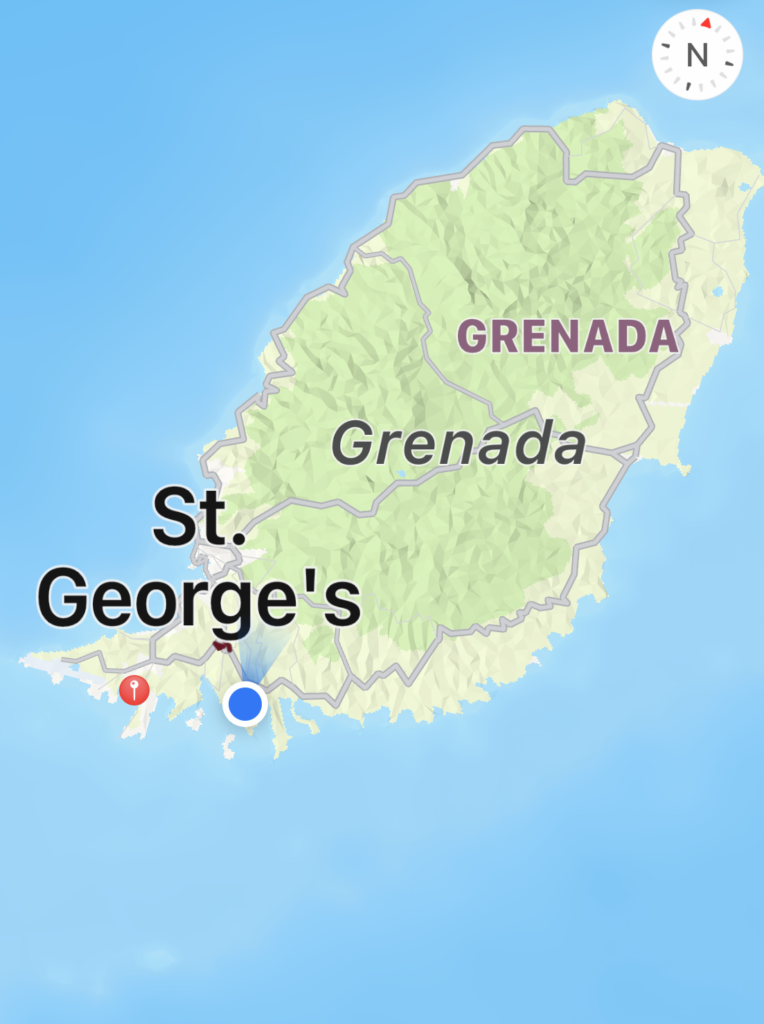
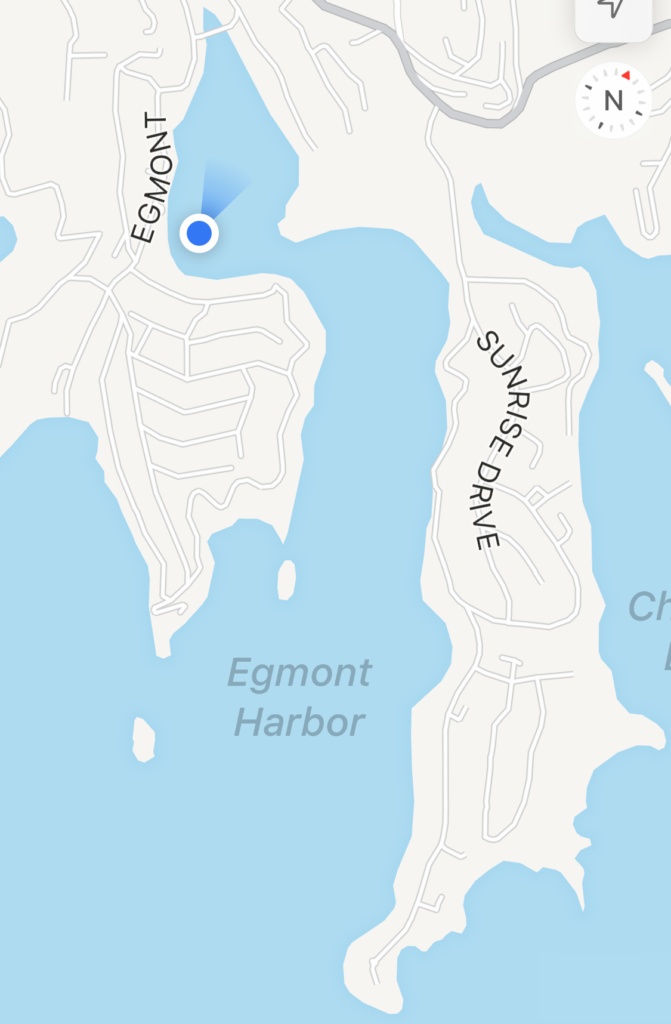
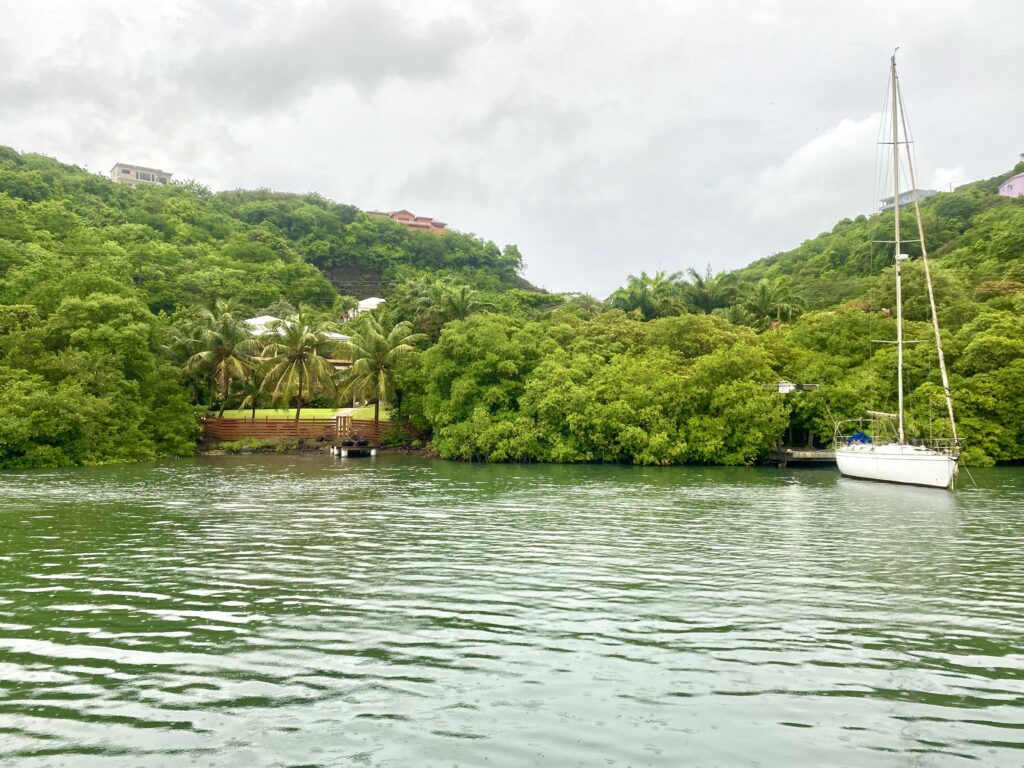
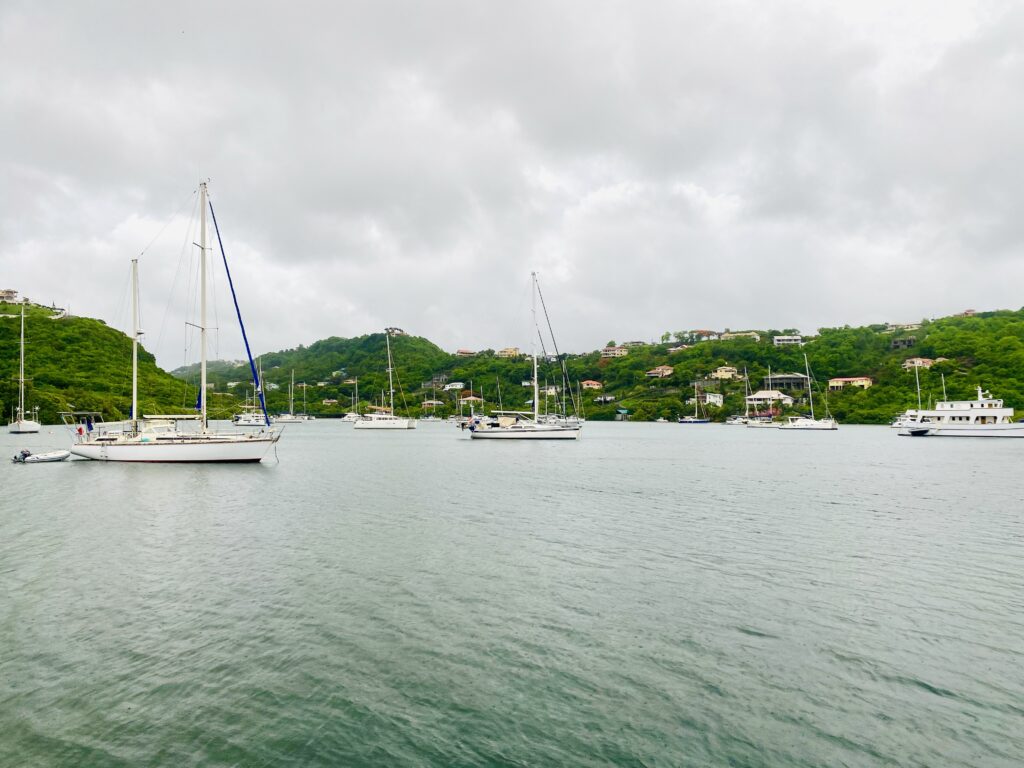
We hardly slept the night before the hurricane came barreling through. We were filled with anxiety and fear, but we set out to respond to this situation as God has instructed us in His Word: “Be anxious for nothing, but in everything by prayer and supplication, with thanksgiving, let your requests be made known to God; and the peace of God, which surpasses all understanding, will guard your hearts and minds through Christ Jesus” (Philippians 4:6-7). Calling out to God in prayer was our needed response to our anxiety and fear, and praying His Word over our situation was the very thing that kept us at peace in the midst of the storm.
We were also mindful of the prayers of so many family members and friends, even entire church congregations, who were praying for us. It is such a humbling thought to consider the love and faithfulness of the body of Christ who bore our burdens with us. It causes us to praise God and turn to Him with thanksgiving. There is no question that God heard these prayers and, by His goodness, might, and mercy, brought us through this storm.
I’ll let this video tell more of our story:
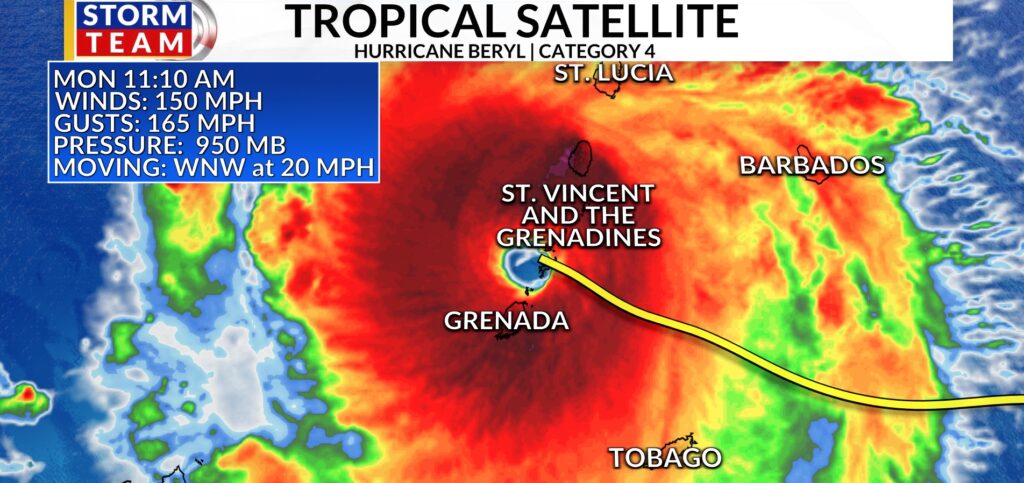
as well as islands of The Grenadines
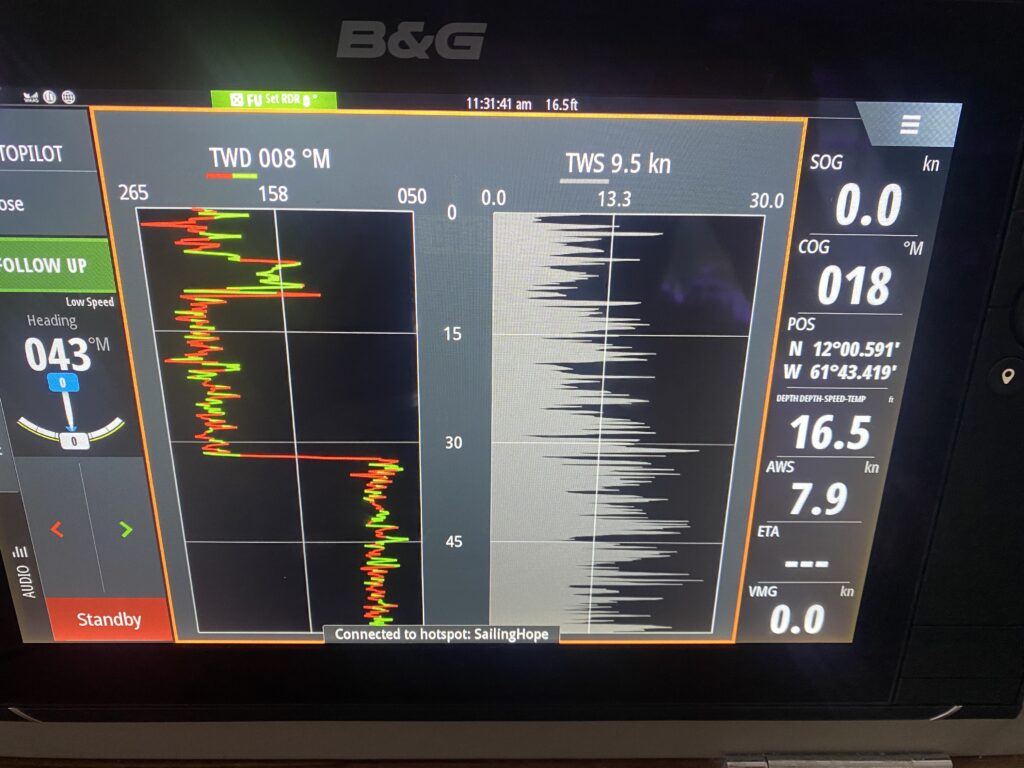
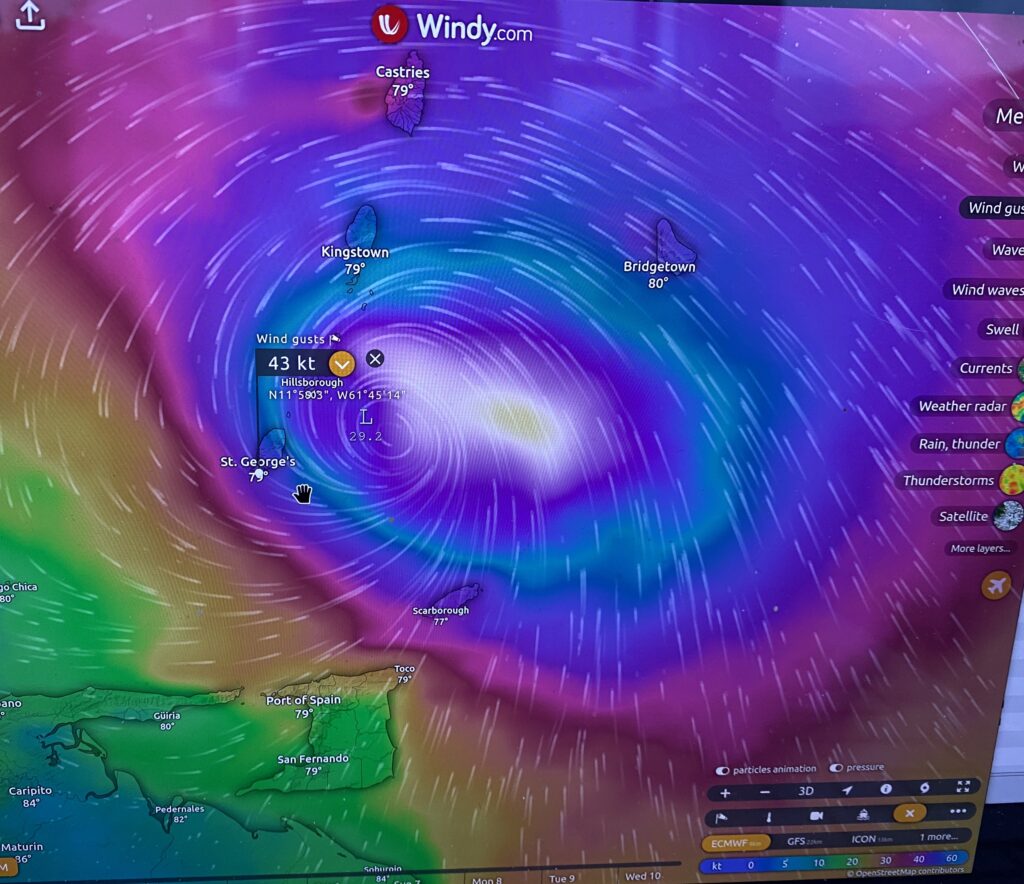
Having ridden out this immense and destructive storm, we’ve learned a lot. Next time there is a named storm in the Atlantic Ocean working its way east from Africa, we will, without hesitation, make the 85-nautical-mile sail to Trinidad and wait out the storm there. And for any unnamed, lesser storm systems that approach Grenada, we will head to Egmont Harbour again and tie up to the mangrove trees.
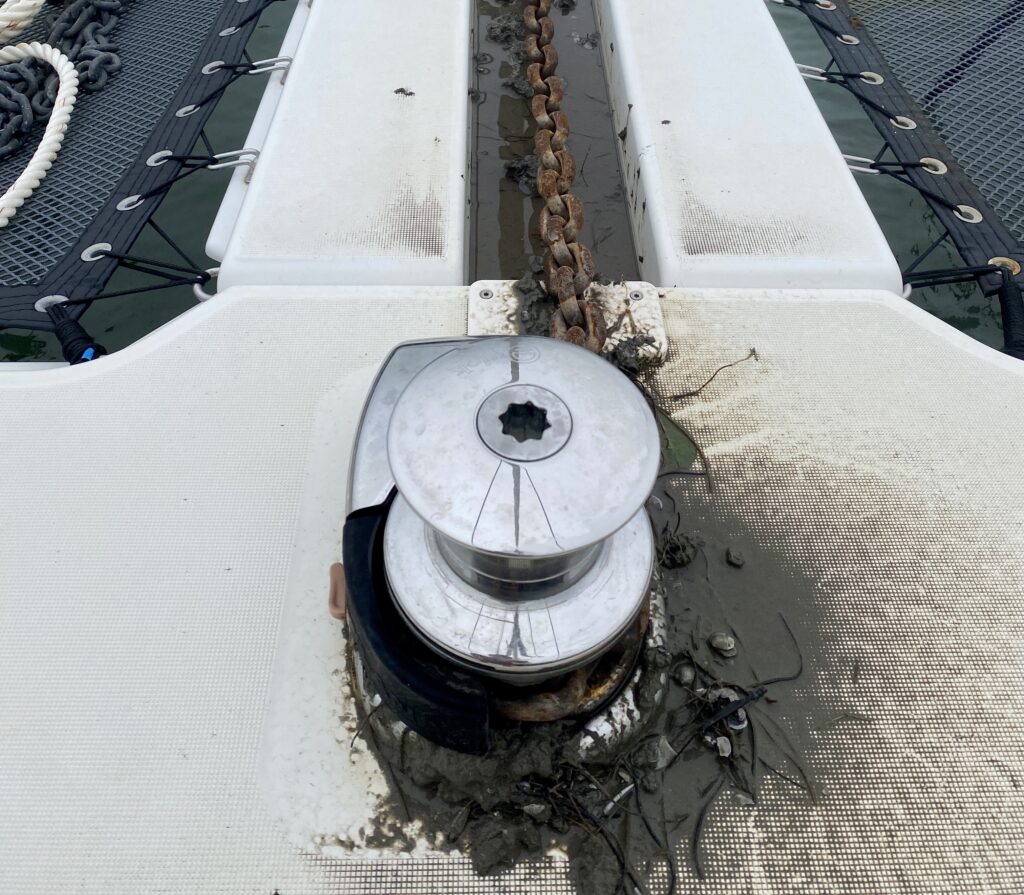
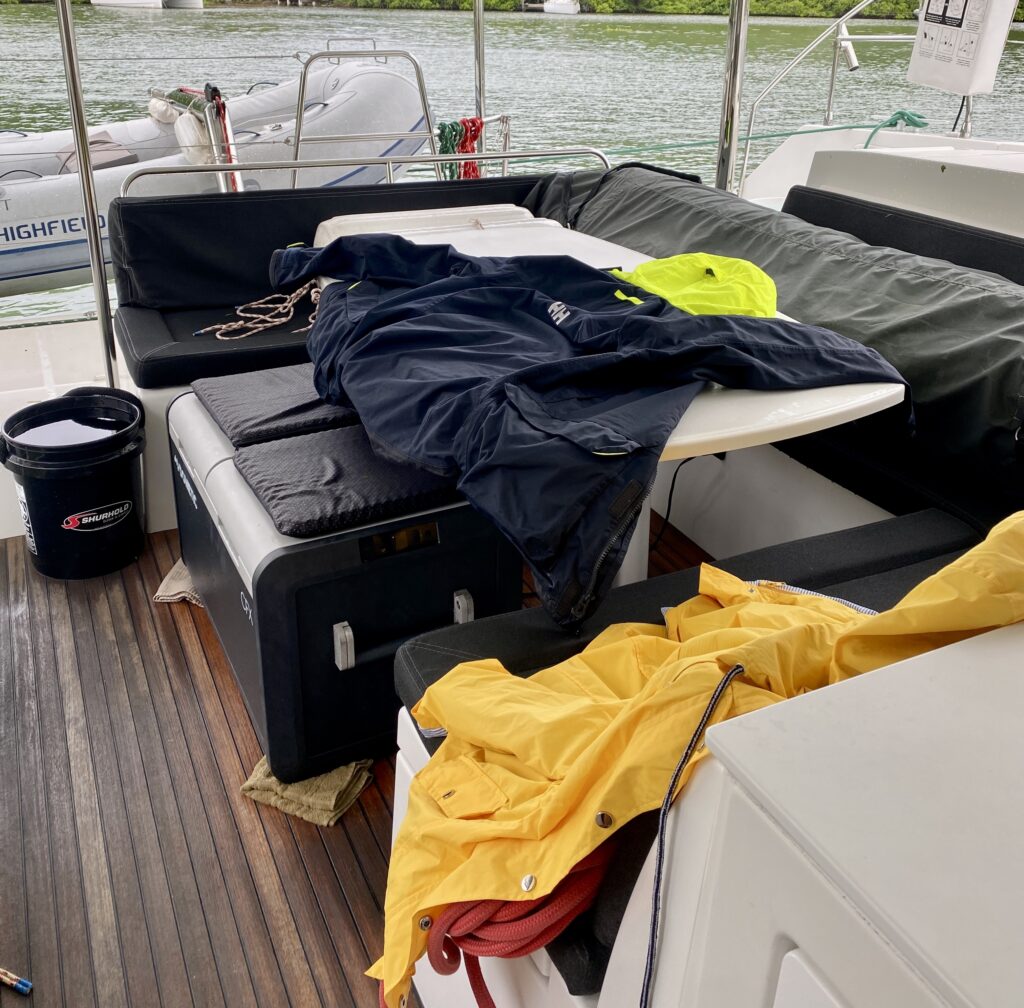
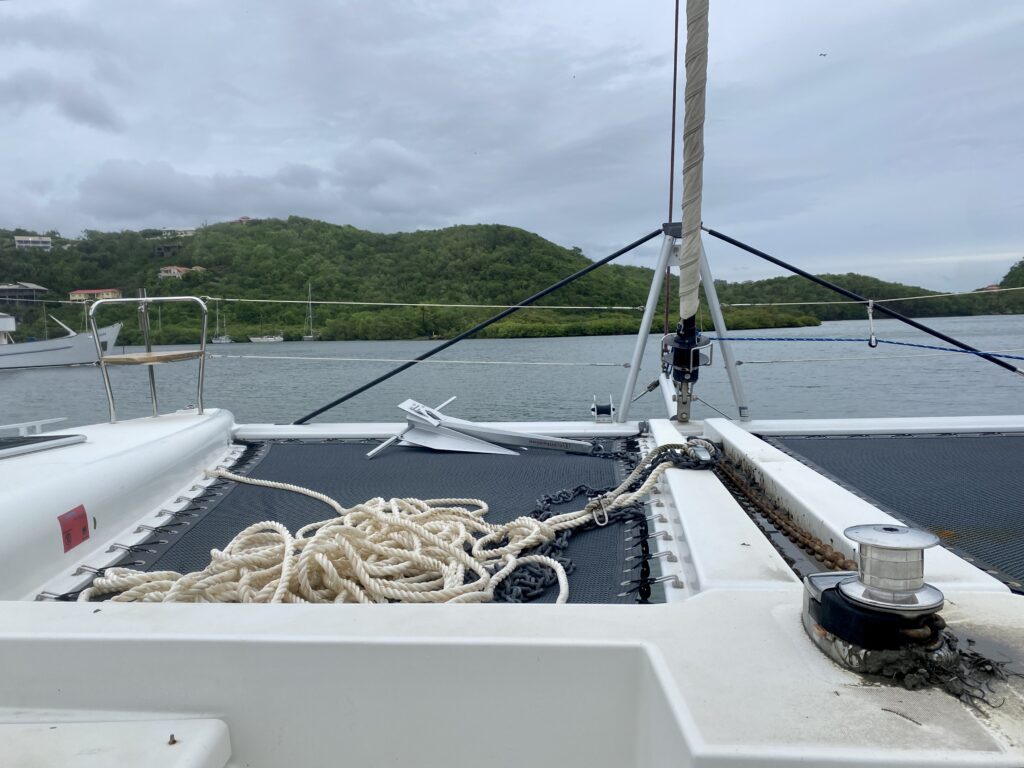
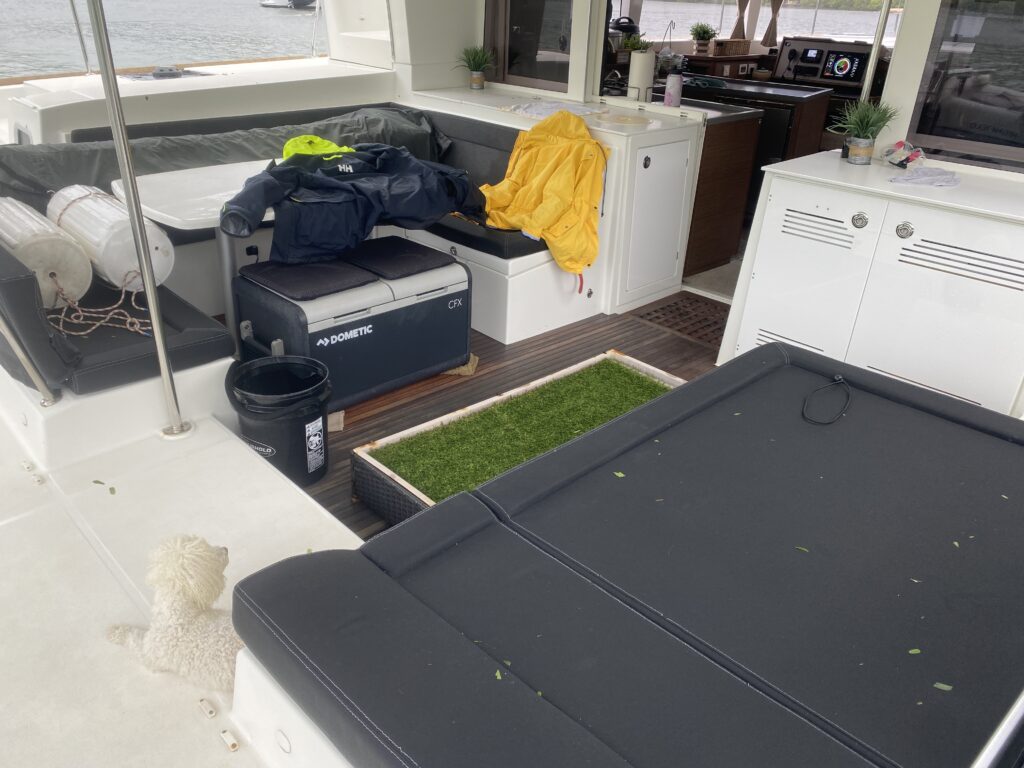
Although we were blessed to come out of this storm unscathed, others were not so fortunate. The eye of Hurricane Beryl made landfall on Grenada’s northern island of Carriacou shortly after 11am, with winds up to 150mph. It brought catastrophic devastation to this small island, with a population of only 9,000. Grenada’s Prime Minister, Dickon Mitchell, said, “in half an hour, Carriacou was flattened”. He also added, “Beryl’s fierce rains and wind late Monday in Carriacou knocked out desalination plants, cell towers, and fiber optic cables, left roads impassable, and destroyed probably 95% of housing along with local businesses and income-generating activities. Widespread reports of destruction and devastation also hit Grenada’s sister island, Petite Martinique, with a population of 2,000, as well as the north side of Grenada’s mainland, affecting roughly 10,000 people.
The islands of Saint Vincent and The Grenadines to the north were also hit with calamitous destruction. Union Island, Mayreau, and Canouan were hit the hardest. It has been reported that 95% of the homes in Union were destroyed, and according to NOAA, it is the strongest known hurricane on record to pass through The Grenadines.
Then after hitting these countries, Beryl barreled through the Caribbean Sea, with maximum sustained winds increasing to near 160 mph. It passed near the south coast of Jamaica on Wednesday, July 3rd, as a Category 3 hurricane. Beryl caused at least 11 deaths as it passed through the Caribbean, and even more as it headed for Mexico’s Yucatan Peninsula, then to Texas where it caused widespread flooding, power outages, and more destruction. Our hearts are grieved over the enormous loss and pain that others have suffered and endured as a result of Hurricane Beryl.

The hurricane may have passed, but our work is just beginning. We will continue to labor in prayer for those who have been affected by Beryl, and we will offer help to those in need as we travel to these island nations. May God bless them!
